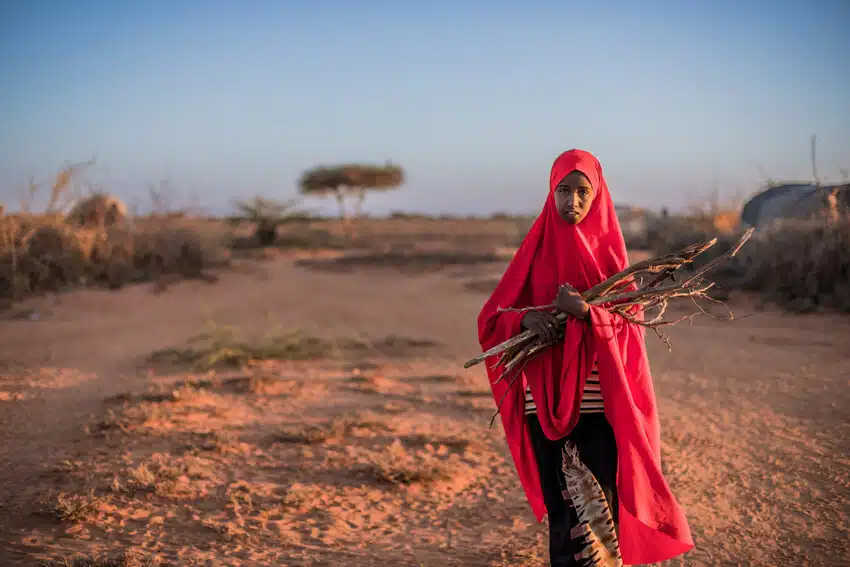Media Centre - Statement - 10 January 2024
Hotter, more deadly: As 2023 breaks records as the hottest year on Earth, Australian Government must urgently end fossil fuels to ensure young people’s lives, health and education are protected

A worrying new report from the European Union’s Copernicus Climate Change Service (CCCS) released overnight has now confirmed 2023 was the Earth’s hottest year on record – with 2024 predicted by scientists to be even hotter.
The Copernicus Global Climate Report has found that last year, the average global temperature climbed 1.48°C above the pre-industrial average, reaching a record-breaking 14.98°C and exceeding the previous record in 2016 by 0.16°C. Alarmingly, scientists from the EU Climate Change Service – which is the earth observation component of the EU’s space programme – now believe 2023 was the hottest 12-month period in the last 100,000 years. The report also documented record-breaking sea surface temperatures and record low sea ice around Antarctica.
As global warming accelerates at breakneck speed, deadly heatwaves, fires and droughts, along with rain, flooding and storms are intensifying at rates we have never before witnessed. These are having the greatest and most devastating impacts on the most marginalised communities – including girls and women – and low-income countries who have contributed least to the climate crisis. When disasters hit, girls are often the first to be pulled out of school and the last to be fed. In times of crisis, rates of gender-based violence and harmful practices such as child marriage increase.
Recent research from girls rights’ and humanitarian organisation Plan International Australia found that climate disasters have had an immense impact on young people’s access to education, with a third of young women and girls across Australia and the Asia Pacific saying their schools had been closed, damaged or destroyed due to climate change related events in the last year, and almost half saying they felt unsafe travelling to and from school due to climate-related disasters.
In Nepal, students are on average losing three months of their education each year due to climate disasters, while in Indonesia in 2021, approximately 100,000 children had their education interrupted by flash floods and landslides. Last year’s devastating floods in Australia in New South Wales and Queensland led to the temporary closure of almost 1,000 schools. Another sober and unacceptable global prediction has found that by next year, climate change will be a leading factor in preventing at least 12.5 million girls from completing their education each year.
Plan International Australia Deputy CEO Hayley Cull said:
“We are witnessing in real time the devastating, deadly impacts of extreme heat and global warming in the places we work – from drought-stricken Somalia and Sudan, where children and families are on the brink of famine, to south-eastern Africa, where Cyclone Freddy killed more than 1,400 people and displaced thousands. Last year, we saw blistering heatwaves across India and South Asia cause deaths and close schools, while disastrous wildfires razed swathes of Canada and Hawaii.”
“This report is yet another resounding alarm for the Australian Government, who must urgently take action for the children of today and future generations to put an end to coal and gas, reduce emissions and try to limit global warming. Australia must fully transition to clean energy and invest in the UNFCCC Loss and Damage fund. It is our duty and responsibility to safeguard a clean and healthy environment for children and young people around the world.
“As the leading global charity for girls’ equality, Plan International recognises that the climate crisis is not gender neutral. It is an intergenerational and gender injustice. As a wealthy nation, Australia has an obligation to make sure that we do not pass on the deteriorating impacts of climate change to future generations. There is no time to lose,” she said.
[ENDS]
Media contacts


